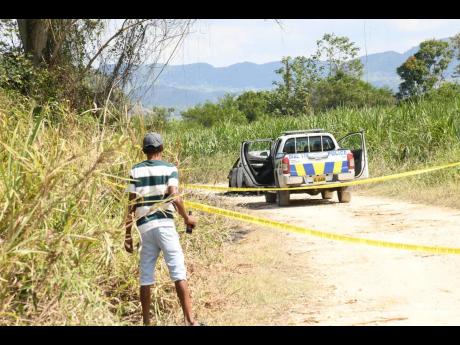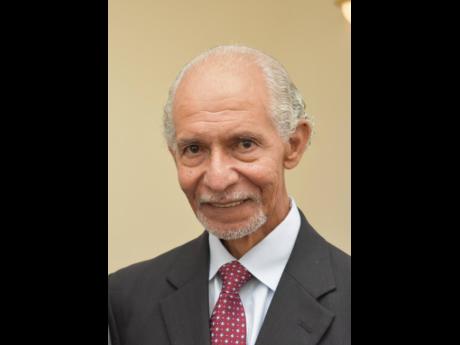Curtis Ward | Carnage in the streets and the government’s response
It’s hard for me or any well-thinking Jamaican to believe the minister of national security or the commissioner of the Jamaica Constabulary Force (JCF) that crime is under control, or that there is a reduction in crime. The often-repeated positive statements which border on self-praise about progress in dealing with crime belie the facts about the intractable crime problem facing the country. One merely has to watch and listen to the local evening news — television or radio — or read any of the two daily newspapers and one can’t help but question the veracity of our government on the issue of crime, safety and security.
The often-repeated phrase, “We know who they are!”, speaking of those who are committing the crimes, is not reassuring. I believe the JCF, or individual law enforcement officers, do in fact know, or at least have strong indicators of who the perpetrators are. But knowing who the perpetrators of crime and violence are cannot be equated with having crime under control or making progress controlling crime. It is discouraging when arrests and prosecutions and convictions are not taking these bad actors off the streets.
For those who suffer on a daily basis from egregious crimes and mayhem plaguing their neighbourhoods, the words of the minister and other politicians and the commissioner of police are of very little solace or significance. These words are of no consequence. Many, who see family members, friends and neighbours die or injured, who have had to listen to the non-stop echo of exploding firearms around them, live in trauma and fear. Ask them!
HOPELESSNESS
The hopelessness of the residents of these troubled communities is compounded when they witness first-hand some first responders arriving at a crime scene, and see members of the JCF palling around and joking with the criminals who they know are responsible for the carnage. The untouchables. I am not making this up! I am not speculating! This is reality!
Communities trapped in this revolving criminal and unsafe environment are witnesses to impunity being granted to criminals in real time. No one takes the plight of the victims seriously. The residents of affected communities are victims of neglect by law enforcement, the government and social services providers. For there to be crime prevention and reduction, action, not words, is needed. This is an unmet priority.
The recent fire-bombing of two houses in Dunkirk in the East Kingston area is but one example of the intensity of the criminal activities plaguing these societies. The bad actors not only fire-bomb homes, they discharge several rounds of gunfire in the vicinity to deliberately keep the hapless residents from escaping the fire. These grossly criminal acts are treated by members of law enforcement as just another incident. And, as I have stated above, no arrests are made. Yet the law enforcement members who respond know who the perpetrators are.
Are members of the media scared of reporting fully on these crimes and the noncommittal responses and behaviours of law enforcement officers? Why isn’t the minister of national security not being called out on the frequent public obfuscations and misinformation on the state of crime? Why is the commissioner not being called on to account for the countless reports on the lack of professionalism of some officers under his command?
This brings me to also question the lack of response to this carnage by the political representatives of the affected areas. I have heard members of the communities lament over the absence of their political representatives in their communities when they are facing these criminal activities. Why aren’t the political representatives coming into the area to at least offer assistance and comfort to the people, and show real and not contrived concerns in real time as members of law enforcement secure the area? They often speak from safe havens away from the affected areas. Who questions their integrity? Whose responsibility is it to offer hope of relief directly to the people and follow through on promises made? In other words, who are prepared to accept responsibility for improvement in the people’s welfare? These politicians, so-called representatives, must be accountable to the people they represent and not slavishly follow the government’s or political party’s talking points.
ZOSOs
Zones of special operations (ZOSOs) intended to provide safety, reduce crime, and effect social and economic relief in beleaguered communities, may be a good idea. But just as the micro-dam initiative to increase water supplies to water-deprived farmers was a great idea in the ‘70s, a lack of continuing adequate investment, over a long period of time, at the required magnitude to make a difference, stymied the dams’ effectiveness, thus leaving the entire country starved of reliable water supplies nearly 40 years hence. The entire country requires adequate investment in a nationwide ‘ZOSO’, with heavy concentration in improving the well-being of the people. Not for political grandstanding.
We reference the new highways built under both People’s National Party and Jamaica Labour Party administrations as progress, and recognise the value of these infrastructure improvements in facilitating islandwide transportation and travel, and we appreciate the potential of infrastructure development for the country’s development. At the same time, far too many communities have been neglected and subjected to under-investment. There is a huge gap between the ZOSOs investment and what is required to make significant improvements in people’s lives. Yet, we know that investment in people is the only sure way of securing our country’s future.
Both political parties tout how many kilometres of roadway each respective government built or initiated. People who are feeling the pressures of the environment in which they live and are unable to escape couldn’t care less. They want to hear more from the Government and opposition party about what is being done or should be done now, and what will be done in the future to improve their lives. Which of the two political parties is prepared to make the level of investments needed across all sectors, not merely incremental measures such as ZOSO, but to effect transformational changes?
Affected communities cry out for urgent attention. They want an end to neglect. The people need immediate relief. Our people, our fellow citizens, want meaningful relief now, and they need hope for the future.
Curtis Ward is former ambassador of Jamaica to the United Nations, with special responsibility for Security Council affairs. He is an attorney and international consultant on geopolitical and international security issues, and is an anti-corruption advocate. Send feedback to columns@gleanerjm.com.


